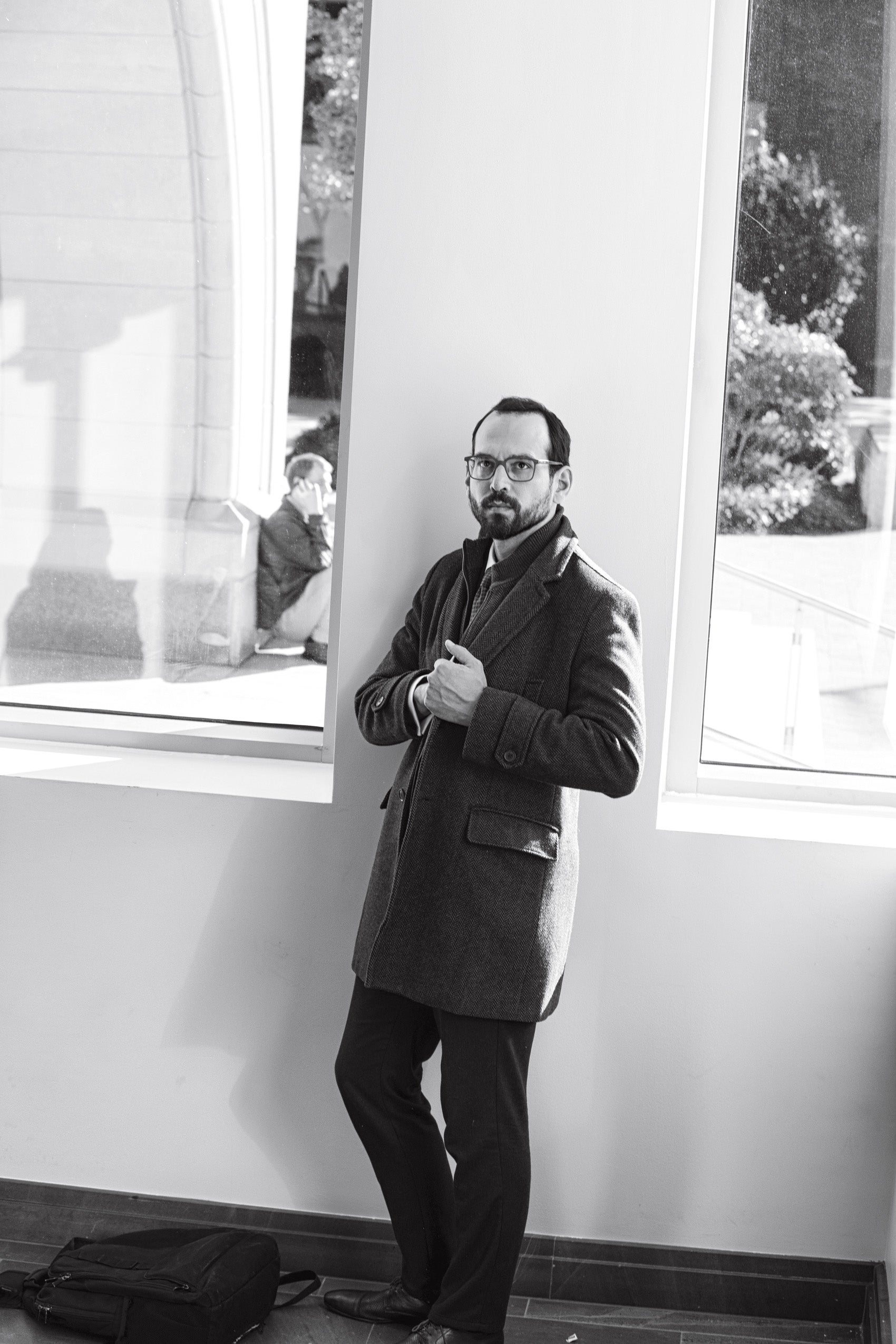As staff attorney with the Public Defender Service for the District of Columbia for more than three years, Assistant Professor Andrew Manuel Crespo ’08 represented adults and juveniles charged with felonies ranging from armed robberies to homicides. Passionate about the work, he had no plans to become an academic. But early in his career, then-Dean Martha Minow engaged him in a life-changing conversation.
“She opened my eyes to the ways in which moving from practice—which I loved—back to Harvard could be a tremendous opportunity,” says Crespo, who joined the HLS faculty in 2015 and teaches first-year criminal law as well as an upper-level course on the Fourth and Fifth amendments. “It was an opportunity not only to look at the big picture and think about how issues that I saw day to day were symptoms of larger systemic problems, but also to teach the next generation of lawyers who see how our criminal justice system is failing and want to help fix it.”
Crespo’s practical experience as a criminal defense lawyer deeply influences his scholarship, which focuses on the design and administration of the criminal justice system, with a particular focus on the administrative role that courts play in regulating law enforcement behavior.
“The organizing idea for much of my scholarship is that criminal courts, particularly at the state and local levels, often function in practice as more than just adjudicative bodies. Rather, they are frequently anchoring institutions within the broader criminal justice system,” says Crespo. “At times, criminal courts play roles more similar to administrative agencies, or even legislatures.”
In his first year on the faculty, Crespo published an article in the Harvard Law Review that examined the large amounts of information that trial courts around the country gather about their local criminal justice systems, primarily through electronic case management systems. Although this information is often viewed as mundane administrative data, Crespo saw in it the potential to illuminate the justice system in action.
“Courts generate tons of data about every charge being filed, every hearing held, every document filed,” says Crespo. “This information is increasingly captured digitally, and it can shed important light on what prosecutors’ offices and police departments are doing across the country, including information about who is getting arrested, when and where and for what, and how leniently some people are being treated compared to others.” As both a collector of and a repository for that data, a court is “not just a judicial institution but also a sunlight institution, sitting in a position where it can inform the local community about how its criminal justice system is operating, and where and how it might be failing,” he says. Courts can also use that information themselves to become better-informed adjudicators, he adds.
Crespo, who writes regularly for a general audience on a range of legal issues, including the investigation by Special Counsel Robert Mueller into possible illegality in connection with the 2016 presidential campaign, is also examining how the growth of plea bargaining has shifted power from judges to prosecutors. William J. Stuntz, a beloved HLS professor who died in 2011, was a leading scholar on this issue and influenced several of the new criminal law faculty, including Crespo, who recently published an article about plea bargaining in the Columbia Law Review. In that paper, titled “The Hidden Law of Plea Bargaining,” he argued that procedural rules, which determine such things as the number of charges that can be filed in a given case or the extent to which those charges can be traded away for more lenient sentences, function as an unrecognized regulatory framework for prosecutors’ plea bargaining power. And who writes these procedural rules? In most states, it is judicial committees, with no oversight by legislatures. “In these states, the court system is acting as the one and only legislative actor when it comes to the procedural side of the system, where important regulatory decisions about plea bargaining are made,” he says.
Crespo has found that criminal courts can often play roles similar to those of administrative agencies or legislatures.
Assistant Professor Andrew Manuel Crespo ’08
Based on his Columbia Law Review article, Crespo was appointed by the Massachusetts Supreme Judicial Court to join the state’s Standing Advisory Committee on the Rules of Criminal Procedure. “It’s a neat opportunity for me not only to contribute to an important aspect of the criminal justice system here in our local community, but also to see what this process looks like on the institutional side, where the rules actually get written,” he says.
Crespo and Yang are also working together on an empirical study of plea bargaining practices around the country. They hope to examine how changes in court rules relate to plea bargaining rates, and to uncover potential relationships that may be of interest not only to academics. “We hope judges, policymakers and practitioners will be interested as well,” he says.
Read more about HLS faculty who are making the case for criminal justice reform »
